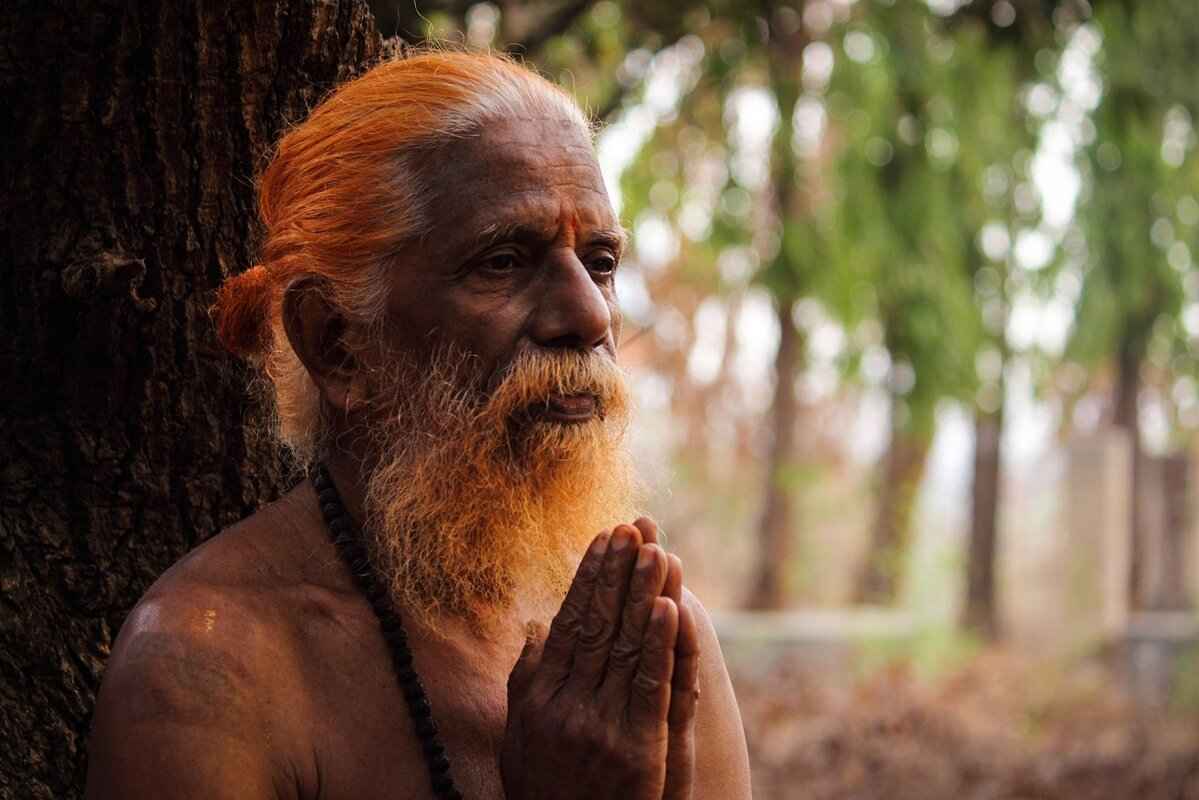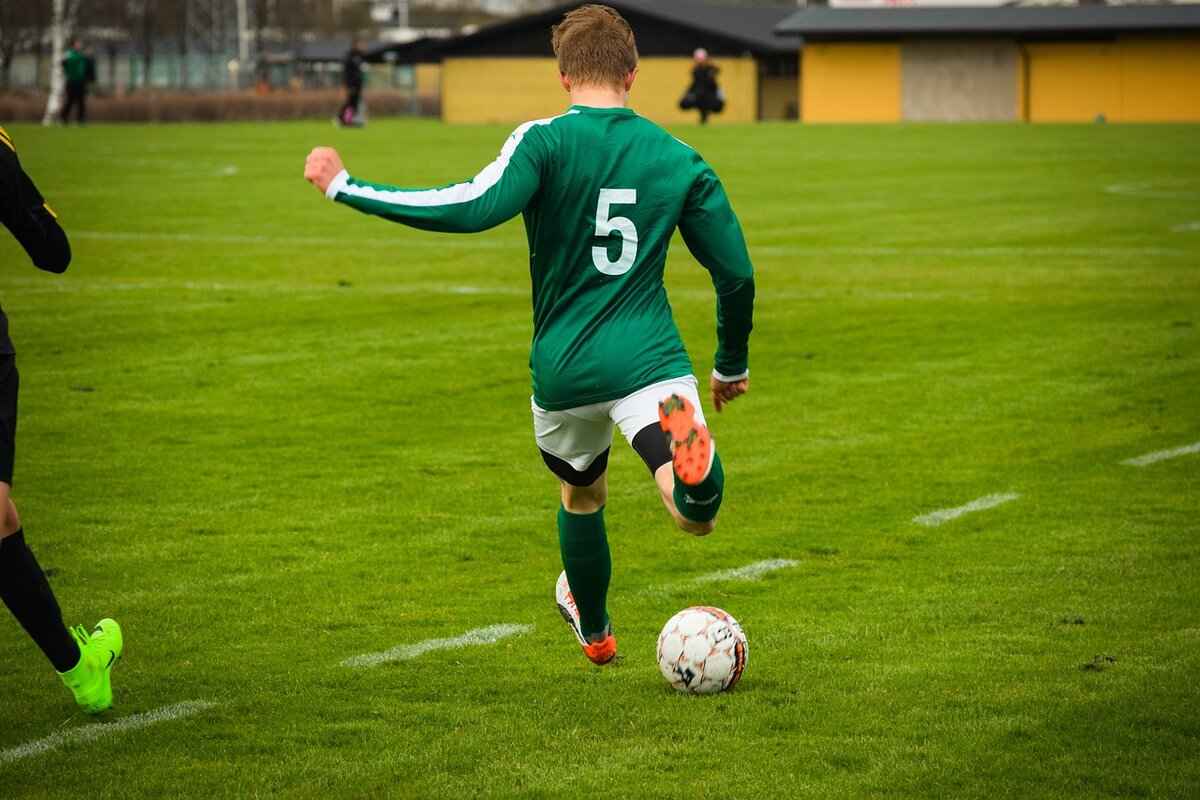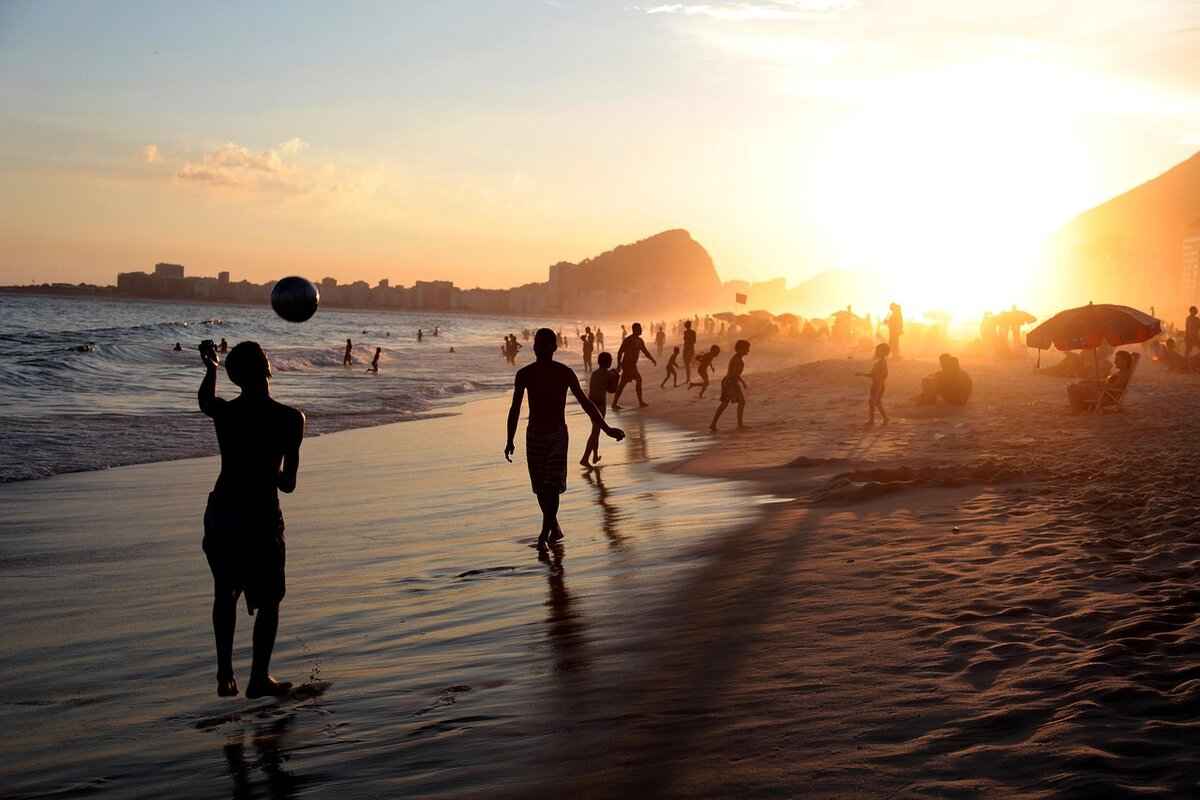Nickelodeon Football Stars 2 is an exhilarating sports game that brings together iconic characters from the Nickelodeon universe. Players can dive into action-packed matches, leveraging the unique abilities of each character to outsmart their opponents. This article delves into the top players in the game, offering strategies to excel and insights into character abilities and gameplay mechanics.
Understanding Nickelodeon Football Stars 2
In this vibrant sports arena, players can choose from a roster of fan-favorite characters, each equipped with special skills that influence gameplay. The game blends fun and strategy, allowing players to experience the thrill of football in a lighthearted environment.
Top Players in Nickelodeon Football Stars 2
Identifying the best players is essential for achieving victory. Each character boasts distinct skills that can significantly impact team dynamics. Below are some of the standout players:
- SpongeBob SquarePants: Known for his agility and quick footwork, SpongeBob can maneuver around defenders with ease.
- Patrick Star: With his powerful shots, Patrick is a formidable offensive player, capable of scoring from various distances.
- Squidward Tentacles: A defensive powerhouse, Squidward excels at blocking shots and intercepting passes, making him a key player in protecting the goal.
- Mr. Krabs: His unique ability to steal the ball from opponents adds a strategic layer to gameplay, making him invaluable in tight situations.
Character Abilities and Strengths
Each character in Nickelodeon Football Stars 2 possesses unique abilities that can turn the tide of a match. Understanding these strengths helps players make informed choices during gameplay. For instance, offensive players like SpongeBob and Patrick are essential for scoring goals, while defensive players like Squidward and Mr. Krabs maintain team stability and thwart opponents.
Strategies for Winning Matches
To secure victory in Nickelodeon Football Stars 2, players must employ strategic planning. Here are some effective strategies:
- Utilize Character Strengths: Make the most of each character’s unique abilities to create dynamic plays.
- Adapt to Opponents: Analyze your opponents’ gameplay styles and adjust your strategy accordingly.
- Forming the Perfect Team: A balanced team is crucial. Consider character abilities and roles to enhance overall performance during matches.
Choosing Complementary Characters
Selecting characters that complement each other’s abilities can create a more dynamic team. Synergy among characters can lead to effective plays and improved chances of winning. For example, pairing a strong offensive player with a reliable defender can provide a solid foundation for success.
Balancing Offense and Defense
A well-rounded team must balance offensive and defensive capabilities. Ensure that your team has a mix of scorers and defenders to adapt to various match situations. This balance is vital for maintaining pressure on opponents while also safeguarding your goal.
Gameplay Mechanics and Tips
Understanding the gameplay mechanics can significantly impact performance. Familiarizing oneself with controls, power-ups, and field dynamics is key to mastering Nickelodeon Football Stars 2.
- Mastering Controls and Techniques: Familiarity with controls is essential for executing plays effectively. Practice dribbling, passing, and shooting to enhance your gameplay experience.
- Utilizing Power-Ups Wisely: Power-ups can provide a competitive edge. Knowing when and how to use them strategically can turn challenging situations into opportunities for scoring or defending.
Community and Online Play
Engaging with the Nickelodeon Football Stars 2 community can enhance the gaming experience. Players can share strategies, participate in tournaments, and learn from one another.
- Joining Online Tournaments: Participating in online tournaments allows players to test their skills against others. These competitions can provide valuable experience and foster a sense of community.
- Sharing Strategies with Friends: Collaborating with friends can lead to improved gameplay. Sharing tips and strategies can help players develop new techniques and enhance their overall performance.
By understanding the strengths of each character, employing effective strategies, and engaging with the community, players can elevate their gameplay in Nickelodeon Football Stars 2 and enjoy the thrilling experience it offers.

Understanding Nickelodeon Football Stars 2
is essential for players looking to dive into this exciting sports game. Set in a colorful universe, Nickelodeon Football Stars 2 brings together a roster of fan-favorite characters, each equipped with unique abilities that enhance gameplay. Players can expect thrilling matches filled with action, strategy, and a touch of nostalgia.
This game is not just about scoring goals; it’s about leveraging the individual strengths of each character to create a winning strategy. With a variety of game modes available, players can engage in solo matches, team competitions, and even participate in online tournaments. The vibrant graphics and engaging soundtracks create an immersive experience that appeals to both younger audiences and nostalgic adults.
Character Diversity and Unique Abilities
One of the standout features of Nickelodeon Football Stars 2 is the diverse cast of characters. Each character has distinct abilities that can significantly influence the outcome of a match. For example, characters like SpongeBob SquarePants possess agility and speed, making them excellent at dodging defenders and scoring goals. Meanwhile, Patrick Star can use his strength to shield the ball from opponents, making him a formidable player in offensive plays.
Key Players to Consider
- SpongeBob SquarePants: Known for his quick footwork and scoring abilities.
- Patrick Star: A powerhouse in offense, great for pushing through defenses.
- Squidward Tentacles: Offers strategic plays with his unique defensive skills.
- Mr. Krabs: A strong defensive player that can disrupt opponents’ strategies.
Gameplay Mechanics and Strategies
Understanding the gameplay mechanics is crucial for mastering Nickelodeon Football Stars 2. Players must familiarize themselves with controls, which include dribbling, passing, and shooting techniques. Practicing these skills can enhance performance during matches. Additionally, players should learn how to utilize power-ups effectively. These power-ups can turn the tide of a match when used at the right moment, providing advantages such as increased speed or enhanced shooting power.
Building a Winning Team
Creating a balanced team is vital for achieving success in Nickelodeon Football Stars 2. Players should consider the strengths and weaknesses of each character when forming their team. A well-rounded team should include a mix of offensive and defensive players to adapt to various match situations. For instance, pairing a quick scorer like SpongeBob with a strong defender like Mr. Krabs can create a dynamic and effective unit on the field.
Engaging with the Community
Joining the Nickelodeon Football Stars 2 community can enhance the gaming experience. Players can share strategies, participate in discussions, and learn from one another. Engaging in online tournaments not only provides a platform to test skills but also fosters camaraderie among players. Collaborating with friends to share tips and strategies can lead to improved gameplay and a deeper understanding of the game mechanics.
In conclusion, Nickelodeon Football Stars 2 offers an exciting blend of sports and entertainment, making it a must-play for fans of all ages. By understanding character abilities, mastering gameplay mechanics, and engaging with the community, players can elevate their gaming experience and enjoy countless hours of fun.

Top Players in Nickelodeon Football Stars 2
Identifying the best players is crucial for achieving success in Nickelodeon Football Stars 2. Each character brings unique skills that can significantly influence gameplay and team dynamics. Understanding the strengths and weaknesses of these characters allows players to make informed decisions and enhance their overall performance on the field.
This article delves into the top players in the game, highlighting their abilities and providing insights into how to leverage these strengths for victory.
Character Abilities and Their Impact
In Nickelodeon Football Stars 2, every character has distinct abilities that can turn the tide of a match. For instance, characters like SpongeBob SquarePants and Patrick Star are known for their exceptional scoring skills, making them key offensive players. Their unique abilities enable them to perform powerful shots and create scoring opportunities that can overwhelm the opposing team.
On the other hand, defensive stalwarts like Squidward Tentacles and Mr. Krabs excel at thwarting attacks. Their defensive skills not only protect the goal but also help maintain team stability during critical moments. Understanding these abilities is essential for players aiming to form a well-balanced team.
Strategies to Maximize Player Strengths
To win matches in Nickelodeon Football Stars 2, players must adopt strategic approaches that capitalize on character strengths. Here are some effective strategies:
- Utilize Offensive Players Effectively: Deploy characters like SpongeBob and Patrick in key scoring positions. Their abilities can create pressure on the opponent’s defense.
- Leverage Defensive Skills: Position Squidward and Mr. Krabs strategically to intercept passes and block shots, ensuring that your team remains resilient against attacks.
- Adapt to Opponent Strategies: Observe the opposing team’s gameplay style and adjust your character placements accordingly. This adaptability can provide a competitive edge.
Building a Winning Team
Creating a balanced team is vital for success in Nickelodeon Football Stars 2. Players should consider the synergy between characters and their respective roles. An optimal mix of offensive and defensive players can enhance overall performance, allowing for a more dynamic gameplay experience.
Choosing Complementary Characters
Selecting characters that complement each other’s abilities can lead to effective plays. For example, pairing a strong scorer with a skilled playmaker can result in seamless transitions from defense to offense. This synergy can create numerous scoring opportunities, increasing the chances of winning.
Balancing Offense and Defense
A well-rounded team must maintain a balance between offensive and defensive capabilities. Players should ensure they have a mix of characters that can score goals while also defending against opponents. This balance is crucial, especially in high-stakes matches where every goal counts.
Conclusion
In summary, identifying and understanding the best players in Nickelodeon Football Stars 2 is essential for achieving success. By leveraging the unique abilities of each character and forming a balanced team, players can enhance their chances of victory on the field. With the right strategies and teamwork, players can navigate the challenges of the game and emerge victorious.
Character Abilities and Strengths
In Nickelodeon Football Stars 2, each character brings a unique set of abilities that can significantly influence the outcome of a match. Understanding these strengths is crucial for players who wish to optimize their gameplay and enhance their chances of victory. This section delves into the various character abilities, highlighting how they can be leveraged during matches.
Characters in the game are categorized based on their roles, such as offensive and defensive players. Each role comes with specialized skills that can tip the balance in favor of the team. Here’s a closer look at these abilities:
| Character | Role | Unique Ability | Impact on Gameplay |
|---|---|---|---|
| SpongeBob | Offensive | Super Shot | Increases scoring chances from long distances. |
| Patrick | Offensive | Power Dribble | Can push past defenders with greater ease. |
| Squidward | Defensive | Block Master | Enhances blocking abilities against shots on goal. |
| Mr. Krabs | Defensive | Steal Tactics | Improves chances of regaining possession from opponents. |
Utilizing these unique abilities effectively is key to formulating a winning strategy. For instance, pairing SpongeBob‘s Super Shot with Patrick‘s Power Dribble can create dynamic plays that confuse the defense and open up scoring opportunities. Similarly, having a strong defensive line with Squidward and Mr. Krabs ensures that opponents find it challenging to penetrate the goal area.
Moreover, understanding the synergy between characters can lead to more effective teamwork. Players should consider how each character’s abilities complement one another. For example, if a player is utilizing an offensive character to push forward, having a defensive character nearby can provide support against counterattacks.
In addition to individual abilities, players must also be aware of the game mechanics that govern character interactions. Knowing when to activate special abilities during critical moments can turn the tide of a match. For example, using a character’s unique ability at the right time can break through a strong defense or thwart a potential goal-scoring opportunity.
As players progress through matches, they should continuously evaluate their character choices and adapt their strategies accordingly. The ability to switch between offensive and defensive strategies based on the flow of the game is vital for achieving success in Nickelodeon Football Stars 2.
In conclusion, mastering the abilities and strengths of each character is essential for any player looking to excel in Nickelodeon Football Stars 2. By understanding how to effectively use these unique skills, players can enhance their gameplay experience and significantly improve their chances of winning matches.
Offensive Players: Best Scorers
Offensive players are the backbone of any successful football team, especially in Nickelodeon Football Stars 2. These characters are designed to score goals and create opportunities, making them invaluable on the field. Their unique skills and abilities can significantly influence the outcome of a match, turning the tide in favor of their team.
Characters like SpongeBob SquarePants and Patrick Star are prime examples of offensive powerhouses. SpongeBob, with his quick footwork and ability to execute rapid-fire shots, can penetrate even the toughest defenses. His special ability allows him to perform a super shot that can catch goalkeepers off-guard, making him a constant threat near the opponent’s goal.
On the other hand, Patrick brings a unique blend of strength and agility. His ability to shield the ball and create space for teammates is crucial during offensive plays. Patrick’s special move, the Star Smash, can clear the path for a shot or even score directly from a distance, showcasing his versatility as an offensive player.
In addition to SpongeBob and Patrick, other characters like Tommy Pickles and Rugrats characters also add depth to the offensive lineup. Tommy’s creative dribbling allows him to navigate through defenders, while his ability to pass accurately makes him an excellent playmaker. This combination of skills ensures that the team remains dynamic and unpredictable on the field.
To maximize the effectiveness of offensive players, players must understand how to utilize their abilities strategically. For instance, combining SpongeBob’s speed with Patrick’s strength can create a powerful offensive duo. By executing coordinated plays, teams can overwhelm their opponents and create scoring opportunities.
Moreover, understanding the opposing team’s weaknesses is vital. Offensive players should always be aware of the defensive formations and adapt their strategies accordingly. For example, if the opposing team has a slow defender, offensive players should exploit this by using quick passes and fast breaks to catch them off-guard.
Another essential aspect of playing offensive positions is the importance of teamwork. While individual skills are crucial, the ability to work with teammates can elevate overall performance. Players should communicate effectively, calling for passes or signaling when to make runs. This synergy can lead to spectacular goals and a more cohesive team dynamic.
In Nickelodeon Football Stars 2, offensive players not only focus on scoring but also contribute to the overall gameplay by creating opportunities for others. A well-rounded offensive strategy involves setting up plays, drawing defenders away, and creating space for teammates to thrive. Players should prioritize developing their offensive skills while also understanding the importance of teamwork and communication.
In conclusion, offensive players like SpongeBob and Patrick are essential for scoring goals in Nickelodeon Football Stars 2. Their unique abilities, when combined with effective teamwork and strategic gameplay, can lead to victory on the field. By mastering the art of offense, players can enhance their chances of winning and enjoy a more engaging gaming experience.
Defensive Players: Game Changers
In the world of Nickelodeon Football Stars 2, defensive players are the backbone of any successful team. They not only protect the goal but also create opportunities for counterattacks, making them essential for a balanced gameplay strategy. Characters like Squidward and Mr. Krabs showcase exceptional defensive skills that can thwart the most aggressive opponents.
Understanding Defensive Roles
Defensive players have a variety of roles, including blocking shots, intercepting passes, and challenging opposing players. Their primary objective is to maintain team stability by preventing goals and disrupting the offensive flow of the opposing team. In Nickelodeon Football Stars 2, each defensive character brings unique abilities that can significantly impact the game.
- Squidward: Known for his agility and quick reflexes, Squidward excels in intercepting passes and blocking shots. His ability to read the game allows him to position himself effectively, making it difficult for opponents to penetrate the defense.
- Mr. Krabs: With his tough exterior and strategic mindset, Mr. Krabs can absorb pressure and shield the goal. His special ability to steal the ball from opponents gives him an edge in reclaiming possession for his team.
Defensive Strategies for Success
To maximize the effectiveness of defensive players, teams should employ specific strategies that leverage their strengths. Here are some tips to enhance defensive gameplay:
- Maintain Formation: Keeping a solid formation is crucial. Players should work in tandem, ensuring that defensive lines are not easily breached.
- Communication: Effective communication among teammates helps in anticipating the opponent’s moves. Calling out plays can lead to better positioning and coordination.
- Reading the Game: Defensive players must develop the ability to read the game, predicting opponents’ actions and positioning themselves accordingly.
Utilizing Defensive Power-Ups
In Nickelodeon Football Stars 2, power-ups can be a game-changer for defensive players. Knowing when to deploy these can turn the tide in crucial moments. For instance, using a power-up that enhances speed can help a defender quickly close in on an attacker, while a shield power-up can provide temporary invulnerability against aggressive plays.
Conclusion
In summary, defensive players like Squidward and Mr. Krabs are not just protectors of the goal; they are vital to a team’s overall strategy and success. By understanding their abilities and implementing effective strategies, players can create a formidable defense that not only thwarts opponents but also sets the stage for successful counterattacks. Mastering the art of defense in Nickelodeon Football Stars 2 can elevate gameplay and lead to victory on the field.
Strategies for Winning Matches
To achieve success in Nickelodeon Football Stars 2, players must implement a variety of strategies that leverage the unique abilities of their characters. Winning isn’t just about individual skill; it requires strategic planning and adaptability. Here are some key strategies to enhance your gameplay experience:
- Understand Character Strengths: Each character possesses distinct abilities that can significantly influence the outcome of a match. For instance, characters like SpongeBob excel in offensive plays, while Squidward is known for his defensive prowess. Familiarizing yourself with these strengths allows for more informed decisions during gameplay.
- Adapt to Opponent Strategies: Every opponent has a unique gameplay style. Observing their strategies during the match can provide insights into how to counteract their plays. For example, if an opponent heavily relies on a strong offensive player, adjusting your defense to focus on that character may thwart their scoring opportunities.
- Utilize Special Abilities: Each character has special abilities that can be game-changers. Knowing when to activate these abilities is crucial. For instance, using a power-up at the right moment can turn the tide of the game, whether it’s to score a goal or to defend against an incoming attack.
- Practice Team Coordination: A successful team operates like a well-oiled machine. Players should practice coordinating their moves, such as passing and positioning, to create scoring opportunities. Effective communication, even if just through in-game signals, can enhance teamwork and lead to victory.
- Balance Offense and Defense: A well-rounded team is essential for success. Players should ensure they have a mix of offensive and defensive characters. This balance allows teams to adapt to different match situations, whether they need to push for a goal or protect their net.
- Experiment with Different Lineups: Sometimes, the key to winning lies in experimenting with various character combinations. Trying out different lineups can reveal unexpected synergies and help you discover the most effective team composition for your play style.
- Learn from Defeats: Each match, whether a win or loss, offers valuable lessons. Analyzing what went wrong in a defeat can provide insights into areas for improvement. Consider what strategies worked, which didn’t, and how you can adjust your approach in future matches.
By applying these strategies, players can enhance their chances of winning in Nickelodeon Football Stars 2. Remember, the game is not just about individual skills but also about how well you can work with your team and adapt to the dynamic nature of each match.

Forming the Perfect Team
In the vibrant world of Nickelodeon Football Stars 2, forming the perfect team is essential for achieving victory on the field. A well-structured team not only enhances individual player performance but also maximizes the overall synergy between characters. This synergy is crucial as it can lead to effective plays and improved chances of winning matches.
To create a balanced team, players must consider various factors such as character abilities, roles, and synergy. Each character in the game comes with unique skills that can either complement or clash with one another. Therefore, understanding how these elements interact is vital for team success.
Each character in Nickelodeon Football Stars 2 has distinct abilities that contribute differently to the game. For instance, characters like SpongeBob are known for their offensive prowess, while others like Squidward excel in defensive strategies. By assessing these abilities, players can make informed decisions when selecting their team members.
- Offensive Roles: Players should prioritize characters who can score goals effectively. For example, pairing high-scoring characters like Patrick with playmakers can create numerous scoring opportunities.
- Defensive Roles: It is equally important to have strong defenders. Characters like Mr. Krabs can provide stability and protect the goal from opposing attacks.
Synergy among team members can significantly enhance gameplay. For example, a combination of offensive and defensive players can create a balanced approach to matches. When players understand each other’s strengths, they can execute more complex strategies, leading to better performance on the field.
A successful team in Nickelodeon Football Stars 2 requires a careful balance between offensive and defensive capabilities. Players should ensure they have a mix of scorers and defenders to adapt to various match situations. This balance allows teams to switch strategies effectively, whether they need to push for a goal or defend against an opponent’s attack.
Regular practice is key to mastering team coordination. Players should engage in practice matches to develop strategies and understand how different characters work together. This practice can lead to improved communication and teamwork, which are vital for executing plays effectively during competitive matches.
In-game strategies such as formations and positioning can also influence team performance. Players should experiment with different formations to see which best suits their team composition. For instance, a formation that emphasizes offensive play might suit a team with strong scorers, while a more defensive formation might be better for a team with solid defenders.
Finally, engaging with the Nickelodeon Football Stars 2 community can provide valuable insights. Players can share strategies, learn from others, and discover new ways to enhance their team dynamics. Online forums and social media groups can be excellent resources for finding tips and tricks to improve gameplay.
In conclusion, forming the perfect team in Nickelodeon Football Stars 2 involves careful consideration of character abilities, roles, and synergy. By balancing offense and defense, practicing team coordination, and engaging with the community, players can enhance their overall performance and increase their chances of winning matches.
Choosing Complementary Characters
In the thrilling world of Nickelodeon Football Stars 2, the choice of characters can significantly influence your team’s performance. is not just a tactical decision; it’s a strategy that can lead to synergy on the field, enhancing your chances of victory.
To create a more dynamic team, players should consider the unique abilities of each character. For instance, pairing a strong offensive player like SpongeBob with a robust defensive character such as Squidward can create a balanced team capable of both scoring and defending effectively. This combination allows players to execute strategic plays that leverage their strengths while mitigating weaknesses.
Character synergy is key. When characters have abilities that complement each other, they can produce powerful combinations. For example, if you choose Patrick, known for his scoring prowess, alongside Mr. Krabs, who excels in defense, you can ensure that while one character is pushing forward to score, the other is ready to protect the goal from counterattacks. This not only enhances gameplay but also instills confidence in the players, knowing their teammates can support them.
Moreover, understanding each character’s special abilities is crucial. Some characters may have unique power-ups that can be activated during the game. For instance, if you select characters with abilities that can disrupt the opponent’s plays or enhance your own, you can create a tactical advantage. For example, using CatDog can confuse opponents due to their unpredictable movements, while Ginger can provide strategic passing options to open up the field.
Additionally, team composition plays a vital role. A well-rounded team should include a mix of offensive and defensive players, ensuring adaptability to various match situations. Players should also consider the overall playstyle they want to adopt. If a fast-paced, aggressive approach is preferred, selecting characters like Rocko and Rugrats’ Tommy can create a high-pressure environment for opponents. Conversely, if a more strategic and defensive style is desired, characters like Angelica and Squidward can provide stability and control.
In terms of gameplay mechanics, it’s essential to practice with your chosen characters to fully understand their strengths and weaknesses. Engaging in practice matches can help players learn how to execute effective plays, utilizing character synergy to its fullest potential. This practice not only enhances individual skills but also fosters better teamwork.
Ultimately, the key to success in Nickelodeon Football Stars 2 lies in the art of character selection. By carefully choosing characters that complement each other’s abilities, players can create a team that is not only dynamic but also capable of executing complex strategies that lead to victory. Remember, the right combination of characters can turn the tide of the game, making each match an exciting and rewarding experience.
Balancing Offense and Defense
In the competitive world of Nickelodeon Football Stars 2, achieving victory hinges on the strategic balance between offense and defense. A well-rounded team must not only focus on scoring goals but also prioritize defensive capabilities to thwart opponents effectively. This dynamic interplay is crucial for adapting to various match situations and ensuring overall team success.
Understanding the Importance of Balance
Every match presents unique challenges, and the ability to switch between offensive and defensive strategies can make all the difference. Players should aim to create a roster that includes a mix of scorers and defenders. This blend allows teams to maintain pressure on the opposing side while also safeguarding their own goal. For instance, a team with strong offensive players like SpongeBob and Patrick can dominate the attack, but without solid defenders like Squidward and Mr. Krabs, they risk being vulnerable to counterattacks.
Strategies for Offensive Play
- Utilizing Speed: Fast players can quickly transition from defense to offense, catching opponents off guard.
- Creating Scoring Opportunities: Employing teamwork to set up plays can lead to higher scoring chances.
- Exploiting Weaknesses: Observing opponents’ defensive gaps can help in crafting effective attacking strategies.
Defensive Tactics for Stability
- Positioning: Proper positioning is vital for defenders to anticipate and block incoming attacks.
- Communication: Players must communicate effectively to coordinate defensive maneuvers and cover each other.
- Countering Attacks: A strong defense can quickly turn into an offensive opportunity through counterattacks.
Adapting to Match Situations
Flexibility is key in Nickelodeon Football Stars 2. Players should be prepared to adjust their strategies based on the flow of the game. For example, if a team is leading, they might focus more on defensive tactics to maintain their advantage. Conversely, if they are trailing, a shift towards a more aggressive offensive approach could be necessary to close the gap.
Building Team Chemistry
Successful teams often exhibit strong synergy among players. Understanding each character’s strengths and weaknesses can lead to better gameplay. For instance, pairing a high-scoring character with a solid defender can create a balanced dynamic that enhances overall performance. Players should engage in practice sessions to explore different combinations and refine their strategies.
Conclusion
In summary, balancing offense and defense is crucial for success in Nickelodeon Football Stars 2. By ensuring a mix of scorers and defenders, players can adapt to various match situations and enhance their chances of victory. Embracing this strategic approach will not only improve individual gameplay but also foster teamwork and collaboration among players.

Gameplay Mechanics and Tips
Understanding the gameplay mechanics in Nickelodeon Football Stars 2 is crucial for enhancing your performance on the field. Mastering these mechanics not only boosts your skills but also increases your chances of victory in matches. This section delves into the essential elements of gameplay, including controls, power-ups, and field dynamics, providing you with the tools necessary to excel.
Mastering Controls and Techniques
Familiarity with the controls is the foundation of effective gameplay. Players should dedicate time to practice key techniques such as:
- Dribbling: Smooth dribbling allows players to navigate through opponents and create scoring opportunities.
- Passing: Accurate passing is vital for maintaining possession and setting up plays. Utilize both short and long passes depending on the situation.
- Shooting: Understanding the shooting mechanics can significantly impact your scoring chances. Experiment with different shot types to find what works best for your character.
In addition, players should practice timing their moves to maximize effectiveness. The more comfortable you become with the controls, the better you can execute plays during high-pressure situations.
Utilizing Power-Ups Wisely
Power-ups are game-changers in Nickelodeon Football Stars 2. Knowing how and when to use them can turn the tide of a match. Here are some tips for effective power-up usage:
- Timing: Use power-ups at critical moments, such as when you are about to score or when defending against an opponent’s attack.
- Combination: Combine power-ups with character abilities for maximum effect. For instance, using a speed boost while executing a special move can catch opponents off guard.
- Awareness: Keep an eye on the power-up locations on the field. Being proactive in collecting them can provide you with a strategic advantage.
Understanding Field Dynamics
The dynamics of the field play a significant role in gameplay. Players should be aware of how different areas of the field affect their strategies:
- Positioning: Maintain optimal positioning relative to the ball and your teammates. This allows for better passing options and defensive coverage.
- Movement: Adapt your movement based on your character’s strengths and the current game situation. For example, offensive players should focus on getting into scoring positions, while defensive players should prioritize blocking opponents.
- Field Zones: Recognize the importance of different zones on the field. Understanding where to position yourself during offense and defense can provide a tactical edge.
Practice and Adaptation
Regular practice is essential for mastering gameplay mechanics. Take the time to play different matches, experiment with various characters, and adapt your strategies based on your opponents’ play styles. Analyzing your gameplay and learning from mistakes will lead to continuous improvement.
Furthermore, engaging with the community can provide valuable insights. Watching experienced players and participating in discussions can enhance your understanding of advanced techniques and strategies.
By focusing on mastering controls, utilizing power-ups effectively, and understanding field dynamics, players can significantly improve their gameplay in Nickelodeon Football Stars 2. Embrace these strategies, and watch your performance soar on the field!
Mastering Controls and Techniques
In the fast-paced world of Nickelodeon Football Stars 2, mastering the controls and techniques is vital for players aiming to excel on the field. The game demands not only quick reflexes but also a deep understanding of the different gameplay mechanics involved. To achieve success, players must become proficient in essential skills such as dribbling, passing, and shooting.
Dribbling is one of the foundational skills in football that allows players to maneuver around opponents effectively. In Nickelodeon Football Stars 2, each character has unique dribbling abilities that can be leveraged to create space and opportunities. Players should practice various dribbling techniques, including feints and quick directional changes, to keep defenders guessing. Regular practice in the training mode can help players develop muscle memory, making dribbling second nature during matches.
Another critical skill is passing. Effective passing is essential for maintaining possession and creating scoring opportunities. Players should focus on different types of passes, such as short passes for quick exchanges and long passes for strategic plays. Understanding when to use each type of pass can significantly enhance team dynamics. Additionally, players should be aware of their teammates’ positions to make accurate passes that lead to goal-scoring chances.
Shooting is perhaps the most exhilarating aspect of the game, and mastering it can lead to numerous goals. Players should practice various shooting techniques, including finesse shots and power shots, to become versatile scorers. Timing and positioning are crucial; players must learn to shoot when they have the best angle and least pressure from defenders. Utilizing the practice arena to refine shooting skills can pay off significantly in competitive matches.
To further enhance gameplay, players should familiarize themselves with the game’s controls. Understanding the layout of buttons and their functions is essential for executing plays efficiently. Players can customize their control settings to match their personal preferences, which can lead to improved performance. Regularly revisiting the controls in practice sessions can help solidify this knowledge.
Moreover, players should take advantage of the power-ups available in Nickelodeon Football Stars 2. These power-ups can provide temporary boosts in speed, shooting accuracy, or defensive capabilities. Knowing when to deploy these power-ups can turn the tide of a match. Players should experiment with different strategies to determine the most effective times to use power-ups, ensuring they maximize their impact during crucial moments.
Additionally, understanding the field dynamics is essential for effective gameplay. Players should be aware of how different areas of the pitch affect play, such as the importance of maintaining width and depth. By spreading out and creating space, players can open up passing lanes and make it harder for opponents to defend. This spatial awareness can also lead to better positioning for both attacking and defending.
Finally, players are encouraged to engage with the community surrounding Nickelodeon Football Stars 2. Sharing tips and techniques with fellow players can lead to a deeper understanding of the game. Online forums and social media groups often have discussions about strategies and gameplay mechanics, providing valuable insights that can help players refine their skills.
In conclusion, mastering controls and techniques in Nickelodeon Football Stars 2 is crucial for achieving success on the field. By focusing on dribbling, passing, shooting, and understanding the game’s mechanics, players can significantly enhance their gameplay experience. Regular practice, coupled with community engagement, will lead to improved performance and a more enjoyable gaming experience.
Utilizing Power-Ups Wisely
In the dynamic world of Nickelodeon Football Stars 2, power-ups are not just flashy additions to the game; they are crucial tools that can significantly alter the course of a match. Understanding how to employ these power-ups effectively can provide players with a competitive edge, transforming challenging situations into golden opportunities for both scoring and defending.
Power-ups come in various forms, each serving a unique purpose. For instance, some may enhance a player’s speed, while others can temporarily boost shooting accuracy or strengthen defensive capabilities. The key to mastering these power-ups lies in knowing when and how to deploy them strategically.
- Timing is Everything: Using a power-up at the right moment can be the difference between a missed opportunity and a game-winning goal. For example, activating a speed boost when breaking away from defenders can lead to an unopposed shot on goal.
- Assessing the Situation: Before activating a power-up, players should assess the current state of the game. Are they on the offensive, pushing for a goal? Or are they defending against an aggressive opponent? Tailoring the use of power-ups to the game’s context is essential for maximizing their effectiveness.
- Combining Power-Ups: Some characters may have the ability to stack or combine power-ups for even greater effects. For instance, pairing a speed boost with enhanced shooting accuracy can create a formidable attacking force that is hard to counter.
Moreover, players should be aware of their opponents’ power-ups. Keeping track of when an opponent activates a power-up can provide insights into their strategy, allowing players to adjust their gameplay accordingly. For example, if an opponent uses a defensive boost, it might be wise to hold off on aggressive plays until the boost expires.
Another critical aspect of power-up utilization is team synergy. Players should communicate and coordinate with teammates regarding power-up usage. For instance, if one player activates a power-up that enhances team defense, others can position themselves strategically to benefit from this advantage.
In addition to these strategies, players should practice using power-ups in various scenarios during training sessions. Familiarity with each power-up’s effects and timing can lead to more instinctive and effective use during competitive matches. By incorporating power-up strategies into their overall gameplay, players can elevate their performance and increase their chances of victory.
Ultimately, the wise use of power-ups in Nickelodeon Football Stars 2 is about more than just individual skill; it’s about understanding the flow of the game and making informed decisions. By mastering the art of power-up utilization, players can turn the tide of any match in their favor, making them not just participants, but formidable contenders on the field.

Community and Online Play
Engaging with the Nickelodeon Football Stars 2 community is not just a pastime; it is a gateway to enhancing your gaming experience. By connecting with fellow players, you can share strategies, participate in tournaments, and learn invaluable tips that can significantly elevate your gameplay.
The community aspect of Nickelodeon Football Stars 2 plays a crucial role in shaping the overall experience. Players who actively engage with others often find themselves improving faster due to the exchange of ideas and techniques. Whether you are a novice or an experienced player, there is always something new to learn from your peers.
One of the most beneficial aspects of being part of the Nickelodeon Football Stars 2 community is the ability to share strategies. Players can discuss various gameplay techniques, character strengths, and effective formations. Here are some popular methods of sharing:
- Online Forums: Platforms like Reddit and dedicated gaming forums allow players to post their strategies and receive feedback.
- Social Media Groups: Joining Facebook or Discord groups can help you connect with like-minded gamers eager to share insights.
- Streaming Platforms: Watching gameplay on Twitch or YouTube can provide visual examples of effective strategies in action.
Online tournaments offer a fantastic opportunity for players to test their skills against others in the community. These competitions not only provide a platform for showcasing your abilities but also foster a sense of camaraderie among participants. Here are some benefits of joining tournaments:
- Skill Development: Competing against skilled players can help you identify your weaknesses and improve upon them.
- Networking: Tournaments often lead to lasting friendships and connections within the gaming community.
- Rewards: Many tournaments offer prizes, such as in-game currency or exclusive items, adding an extra layer of motivation.
The knowledge shared within the community can be a game-changer. Players can learn from each other’s experiences, discovering new tactics and strategies that they may not have considered before. Here are some effective ways to learn:
- Watch Tutorials: Many experienced players create tutorial videos that break down complex strategies into manageable steps.
- Engage in Discussions: Participating in discussions about gameplay mechanics can provide new perspectives.
- Practice Together: Forming practice groups with friends or fellow gamers can lead to collaborative learning and improvement.
Beyond just improving your skills, engaging with the Nickelodeon Football Stars 2 community can lead to lasting friendships. The shared passion for the game often brings players together, creating bonds that extend beyond the virtual field. Whether you are teaming up for a friendly match or strategizing for a tournament, the social aspect of gaming can be incredibly rewarding.
In summary, engaging with the Nickelodeon Football Stars 2 community can profoundly enhance your gaming experience. From sharing strategies and participating in tournaments to learning from others and building friendships, the benefits are numerous. Embrace the community, and you will not only improve your skills but also enjoy the game on a deeper level.
Joining Online Tournaments
in Nickelodeon Football Stars 2 is an exciting way for players to elevate their gaming experience. These tournaments provide a unique platform for players to showcase their skills and compete against others from around the globe. Engaging in these competitions not only enhances individual gameplay but also fosters a vibrant community among fans of the game.
By participating in online tournaments, players can test their skills in a competitive environment. This experience is invaluable as it allows players to identify their strengths and weaknesses. Competing against a variety of opponents with different play styles can significantly improve a player’s strategic thinking and adaptability. Each match serves as a learning opportunity, offering insights into advanced techniques and gameplay strategies that may not be evident during casual play.
Moreover, online tournaments often feature various formats, such as knockout rounds or league play, which can keep the competition fresh and engaging. Players can choose to participate in tournaments that suit their skill levels, from beginner to advanced, ensuring that everyone can find a suitable challenge. This inclusivity helps in building a strong sense of community, as players can connect with others who share similar interests and passions.
In addition to skill development, online tournaments also come with the potential for reward systems. Many tournaments offer prizes, ranging from in-game currency to exclusive character skins or other rewards. This adds an extra layer of motivation for players to perform their best. The thrill of competing for tangible rewards can enhance the overall gaming experience, making each match even more exhilarating.
Participating in these tournaments can also lead to friendships and collaborations. Players often form teams or guilds, which enables them to strategize together and support one another during matches. This camaraderie can lead to lasting relationships, both in-game and outside of it. Sharing strategies, tips, and experiences with teammates can provide a deeper understanding of the game, ultimately leading to improved performance.
Furthermore, the online tournament scene is constantly evolving. Players can stay updated with the latest trends, strategies, and character updates through community forums and social media. Engaging with other players in discussions about tournament experiences can spark innovative ideas and tactics that can be implemented in future matches. This continuous learning process is crucial for any player looking to excel in Nickelodeon Football Stars 2.
Ultimately, joining online tournaments in Nickelodeon Football Stars 2 is not just about winning; it’s about growth, community, and enjoyment. The competitive nature of these events encourages players to push their limits while forming connections with others who share their enthusiasm for the game. Whether you are a seasoned player or a newcomer, the world of online tournaments offers something for everyone. So gather your friends, sharpen your skills, and dive into the exciting realm of competitive play!
Sharing Strategies with Friends
is an essential aspect of improving gameplay in Nickelodeon Football Stars 2. When players come together to exchange tips and techniques, they not only enhance their own skills but also foster a collaborative environment that can lead to greater enjoyment and success in the game. The importance of teamwork and communication cannot be overstated, as these elements play a crucial role in mastering the game’s mechanics and strategies.
One of the first steps in collaborating with friends is to establish a communication channel. This could be through voice chat, messaging apps, or even social media groups dedicated to Nickelodeon Football Stars 2. By maintaining open lines of communication, players can quickly share insights about character abilities, game mechanics, and effective strategies that have worked for them in past matches.
Sharing specific gameplay experiences can also be incredibly beneficial. For instance, if a player discovers a particular character’s strength in a certain position on the field, sharing this information can help teammates adjust their strategies accordingly. Players can create a list of characters they find effective in different roles, such as offensive or defensive positions, and discuss how to utilize these characters in various match scenarios.
- Discussing Character Abilities: Understanding each character’s unique strengths and weaknesses can lead to better team compositions.
- Creating Practice Sessions: Organizing practice matches allows players to experiment with different strategies and learn from each other’s gameplay.
- Analyzing Game Replays: Watching replays of matches can help identify mistakes and areas for improvement, providing a platform for constructive feedback.
In addition to sharing strategies, players can also benefit from collaborative learning. When friends play together, they can observe each other’s techniques and adapt their own gameplay based on what they see. This peer observation can lead to the discovery of new techniques that players may not have considered on their own. For example, one player might excel at dribbling, while another might have a knack for accurate passing. By learning from one another, players can develop a more well-rounded skill set.
Moreover, players can form teams that capitalize on each member’s strengths. A well-balanced team, where each player understands their role and how to support their teammates, can significantly improve the chances of winning matches. This collaborative approach not only enhances individual skills but also builds a sense of camaraderie among friends, making the gaming experience more enjoyable.
Lastly, engaging in friendly competitions can further motivate players to improve. Organizing small tournaments among friends can create a fun and competitive atmosphere, pushing everyone to refine their skills while enjoying the game. The thrill of competition can lead to valuable learning experiences, as players are often more driven to perform at their best when there’s a friendly rivalry at stake.
In summary, collaborating with friends in Nickelodeon Football Stars 2 can lead to significant improvements in gameplay. By sharing strategies, engaging in collaborative learning, and participating in friendly competitions, players can develop their skills and enhance their overall performance. This teamwork not only makes the game more enjoyable but also fosters a community of players who support and motivate each other to excel.
Frequently Asked Questions
- What characters are the best offensive players in Nickelodeon Football Stars 2?
Characters like SpongeBob and Patrick shine as offensive players due to their incredible scoring abilities. Their unique skills can turn the tide of the game, making them essential for any winning team!
- How can I form a balanced team?
Creating a balanced team involves selecting characters that complement each other’s abilities. Make sure to mix offensive and defensive players to ensure your team can adapt to various match situations effectively.
- What are some strategies for winning matches?
Winning requires strategic planning! Utilize your characters’ strengths, adapt to your opponents’ tactics, and don’t forget to practice your controls and techniques regularly to enhance your gameplay.
- How do power-ups work in the game?
Power-ups can give you a significant edge during matches. Knowing when to use them can turn a challenging situation into a scoring opportunity, so keep an eye on your surroundings!
- Can I play Nickelodeon Football Stars 2 online?
Yes! Engaging in online tournaments is a fantastic way to test your skills against other players. It also fosters a sense of community where you can share strategies and learn from each other.














